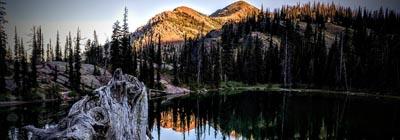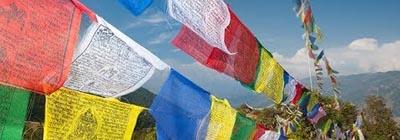Aerie's Semesters prepare students for careers in medicine and leadership roles in the competitive outdoor field.
All three Semesters offer 15 upper-division University of Montana credits, EMT and Wilderness EMT certification, and numerous other professional-level certifications.
The Semesters are built around realistic scenarios, interactive lectures, and clinical observations in a variety of settings.
Aerie Semesters
February 1 - April 12, 2025
Travel to Costa Rica and Montana and earn your: EMT, W-EMT, Red Card, Avalanche Level 1 and Rescue, Swiftwater Rescue, Leave No Trace, and more!
June 3-July 2, 2024
Live and learn in wild Montana while earning your EMT, Wilderness EMT and Wildland Firefighting Red Card Certifications.
September 1st - November 6th, 2024
Live and learn in wild Montana and in northern India while earning your EMT, WEMT, Rope Rescue Technician, and Wildland Firefighting Red Card Certifications.
What do students say about their Semester experience?
"After separating from the Marine Corps I had trouble finding school and work as purposeful, active and challenging as life in the military was. Thankfully I stumbled across Aerie Backcountry Medicine. Their Semester had everything that I loved and missed from the Marines. The course work was fast paced, immersive and hands on, not just sitting at a desk and being lectured at. It was great to be doing something both physically and mentally exhilarating again. The small class size also made for great camaraderie and friendships I cherish. I found that it allowed me a way to continue to serve people and have my adventure too. Since completing the program, I have used my skills on a local fire department and with Team Rubicon, a volunteer veteran disaster response team. The variety of certifications I acquired with Aerie set me apart from the other applicants. Additionally, the quality of the patient care skills learned in this course were leaps and bounds ahead of EMTs coming out of the colleges in my home state. I truly attribute my success to this program." -- Steph Baer, Marine Corps Officer
"The most meaningful part of the Semester was working in the health care clinic in the rural community of Zapaton. Under the instruction of Aerie’s medical director, I gained hands-on experience working in the health care field and I gained an understanding of how a community’s culture can influence health trends. This initial exposure to patient care later inspired me to pursue a career in nursing. The wilderness medicine semester was my favorite and the most influential term of college." -- Lauren DePaul, RN
"Before this program, I had always lacked confidence in my ability to excel in science classes and, in turn, never really considered a career in a medical field. However, the amazingly supportive environment Aerie offered gave me the confidence to try something out of my comfort zone."--Katie Kelleher, Family Nurse Practitioner at Southwestern Vermont Medical Center
"Aerie’s semester program was a key point in my development as an individual. The program was fast-paced and challenged me in ways that I had not experienced in my 4 years of undergrad studies. Overcoming obstacles faced during the Semester has given me confidence as an individual and in my skills as a patient care provider. The quality of the program can be seen in my success both as an EMT and as a fire fighter. Having Aerie Backcountry Medicine on my resume has given me a competitive edge in my career." -- Kate Farris, Firefighter/EMT in Omaha, Nebraska
"After taking the Semester in Wilderness Medicine, and more specifically after helping in the medical clinic in Costa Rica, I decided to switch from environmental studies to pursue a degree in Nursing. I have never worked on an ambulance as an EMT, but I have used my EMT skills at every job I have pursued since Aerie." -- Tressa Langford, Pediatric Oncology Nurse and recipient of the Alaska Nurse of the Year Award (for a nurse with less than 5 years' experience).
General Information About All Three Aerie Semesters
Q: What is a typical day like during an Aerie Semester?
A: Days during the Semester are varied and full; instruction runs an average of 6 days a week. As an example, a typical day might look like this: Breakfast starts at 7 a.m. with class beginning at 8 a.m. Mornings are typically dedicated to in-class discussion and lecture. Students are given a one hour lunch break and afternoons usually involve scenario-based exercises which run until 5 p.m. Dinner lasts from 6:30 – 7:30. Evenings are usually spent reading, studying, and practicing skills in small groups. In addition to this routine, students should expect several overnight and multi-day scenarios.
Q: Is an Aerie Semester challenging?
A: Yes! We expect that this will be one of the most rewarding, challenging, rigorous and exciting experiences of your life. We only want students who are looking for this challenge and the opportunities it presents. Communal living, skill acquisition, frequent testing, prolonged scenarios and international or backcountry travel represent some of the challenging core elements of the program.
Q: Is this program safe?
A: No course is capable of operating without the risk of injury or illness. Aerie believes that students learn best when they are outdoors, involved in realistic, engaging scenarios and practical sessions. As a result, we are in these environments as often as possible. The risks we face during those exercises are similar to any faced in an austere, remote environment. We encourage you to talk with our staff about risks inherent in our training programs before enrolling.
Costs
Q: Are there any financial aid options or scholarships available?
A: Yes. Each program offers a number of scholarships and financial aid options. These are detailed in each Semester's description. Students can usually use their AmeriCorps Awards and their FAFSA aid to pay for tuition; students in the Summer Semester can use their GI Bill® benefits; Spring and Fall Semesters are not eligible for the GI Bill®. Click here for more information.
Academics
Q: Are there any prerequisites for the Semester?
A: Students must be ready for an intense, challenging experience, but there are no specific academic prerequisites. Many of our best students have had no previous medical training. Students must be 18 years of age. In addition, to test for and receive National Registry EMT certification, students must have a high school diploma/ GED and have no current felony convictions. Otherwise, we expect students to arrive with a solid work ethic, physically capable of completing the program's activities, an open mind and a positive attitude.






